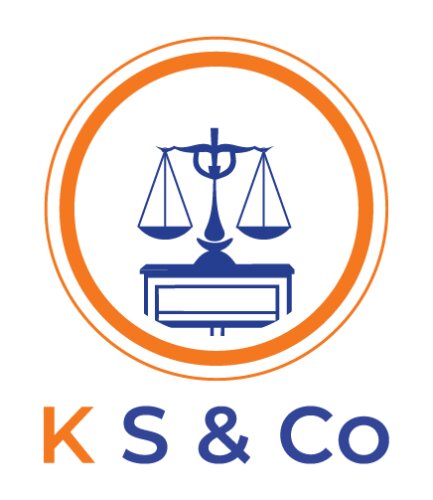Best Technology Transactions Lawyers in India
Share your needs with us, get contacted by law firms.
Free. Takes 2 min.
Or refine your search by selecting a city:
List of the best lawyers in India
About Technology Transactions Law in India
Technology Transactions Law in India encompasses a wide array of legal practices focused on the use, development, licensing, and transfer of technology. It covers various sectors including software development, IT services, telecommunications, and digital commerce. Given the rapid evolution of technology, the legal frameworks governing these transactions are also dynamic, focusing on protecting intellectual property, data privacy, cybersecurity, and regulatory compliance. With India's expanding digital economy, the laws related to technology transactions are aimed at facilitating innovation while ensuring protection and fair practices.
Why You May Need a Lawyer
There are several situations where obtaining legal help in technology transactions may become necessary:
- Negotiating and drafting contracts for the development, licensing, or sale of technology.
- Ensuring compliance with data protection laws such as the Information Technology Act, 2000 and other regulations.
- Resolving disputes related to technology licenses or intellectual property rights.
- Protecting proprietary software or technology from infringement or unauthorized use.
- Advising on mergers and acquisitions involving technology companies.
- Navigating complex cross-border technology transactions.
Local Laws Overview
The following are key legal frameworks and regulations pertinent to technology transactions in India:
- Information Technology Act, 2000: Governs electronic commerce and cybercrime, setting out rules for digital signatures, electronic governance, and securing data transactions.
- Intellectual Property Laws: Include copyrights, patents, and trademarks crucial for protecting technological innovations.
- General Data Protection Regulation (GDPR): For companies that handle data belonging to EU citizens, compliance with international data protection laws such as GDPR is essential.
- The Indian Contract Act, 1872: Regulates contracts in India, setting forth principles that are applicable to technology transaction arrangements.
- Competition Act, 2002: Ensures fair competition practices, crucial for transactions involving significant technology transfers or mergers.
Frequently Asked Questions
What are technology transactions?
Technology transactions involve the sale, licensing, or transfer of technology-related products and services, including software, hardware, and digital services.
Why are contracts important in technology transactions?
Contracts ensure that the terms of technology transactions are clear, enforceable, and protect the parties' interests, including intellectual property rights and confidentiality obligations.
What is a technology licensing deal?
Technology licensing involves a licensor granting permission to a licensee to use, modify, or resell technology under specific terms without transferring ownership.
How does Indian law protect technology innovations?
India's intellectual property framework, including patent, copyright, and trademark laws, protects technology innovations by granting exclusive rights to creators.
What should one consider when handling cross-border technology transactions?
Cross-border transactions require careful consideration of differing jurisdiction laws, tax implications, data protection regulations, and dispute resolution mechanisms.
Is data protection a concern in technology transactions?
Yes, data protection is critical, especially with laws like the GDPR and India's expected data protection legislation to ensure secure handling of personal data.
How can technology agreements enforce compliance?
Compliance can be enforced through detailed contractual terms, audits, performance reviews, and explicit remedies for non-compliance stated in the contract.
Can technology be transferred to foreign entities in India?
Yes, but such transfers must comply with the Foreign Exchange Management Act (FEMA) and other relevant export regulations.
What are software escrow agreements?
A software escrow agreement involves depositing source code with a third party to ensure access and protection if the software provider fails to meet obligations.
What role does due diligence play in technology transactions?
Due diligence assesses the viability and risks associated with the technology, ensuring compliance and protecting against future liabilities.
Additional Resources
Several resources and entities can provide additional guidance and support:
- Ministry of Electronics and Information Technology (MeitY): Provides comprehensive guidance on IT policies and regulations.
- Data Security Council of India (DSCI): Focuses on data protection and cybersecurity best practices.
- National Association of Software and Service Companies (NASSCOM): Offers insights into the IT industry and regulatory updates.
- Intellectual Property India (Controller General of Patents, Designs & Trade Marks): Crucial for matters related to IP rights.
- Bar Council of India: Provides information on finding legal professionals specializing in technology transactions.
Next Steps
If you require legal assistance in technology transactions in India, consider the following steps:
- Identify Your Needs: Clearly understand the nature of your transaction and specific legal assistance required.
- Research Qualified Lawyers: Look for lawyers or law firms specializing in technology transactions, leveraging resources like the Bar Council of India.
- Consult Multiple Experts: Before engaging a lawyer, consult multiple experts to compare their experience, fees, and approach.
- Review Credentials and Track Record: Examine the lawyer's past work, focusing on successfully managed technology transactions.
- Ensure Clear Communication: Establish transparent communication with your lawyer to ensure all aspects of your transaction are understood and well-represented.
- Discuss Fees and Payment Terms: Clarify any fee structures and payment plans beforehand to avoid misunderstandings.
By following these steps, you'll be better equipped to secure the legal support needed for successful technology transactions in India.
Lawzana helps you find the best lawyers and law firms in India through a curated and pre-screened list of qualified legal professionals. Our platform offers rankings and detailed profiles of attorneys and law firms, allowing you to compare based on practice areas, including Technology Transactions, experience, and client feedback.
Each profile includes a description of the firm's areas of practice, client reviews, team members and partners, year of establishment, spoken languages, office locations, contact information, social media presence, and any published articles or resources. Most firms on our platform speak English and are experienced in both local and international legal matters.
Get a quote from top-rated law firms in India — quickly, securely, and without unnecessary hassle.
Disclaimer:
The information provided on this page is for general informational purposes only and does not constitute legal advice. While we strive to ensure the accuracy and relevance of the content, legal information may change over time, and interpretations of the law can vary. You should always consult with a qualified legal professional for advice specific to your situation.
We disclaim all liability for actions taken or not taken based on the content of this page. If you believe any information is incorrect or outdated, please contact us, and we will review and update it where appropriate.
Browse technology transactions law firms by city in India
Refine your search by selecting a city.

















